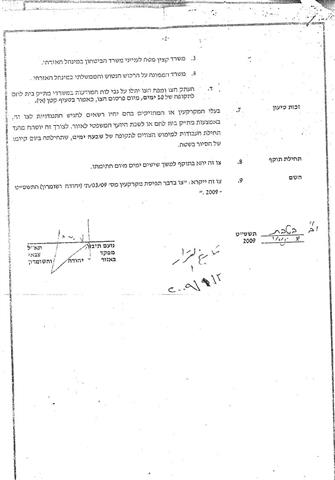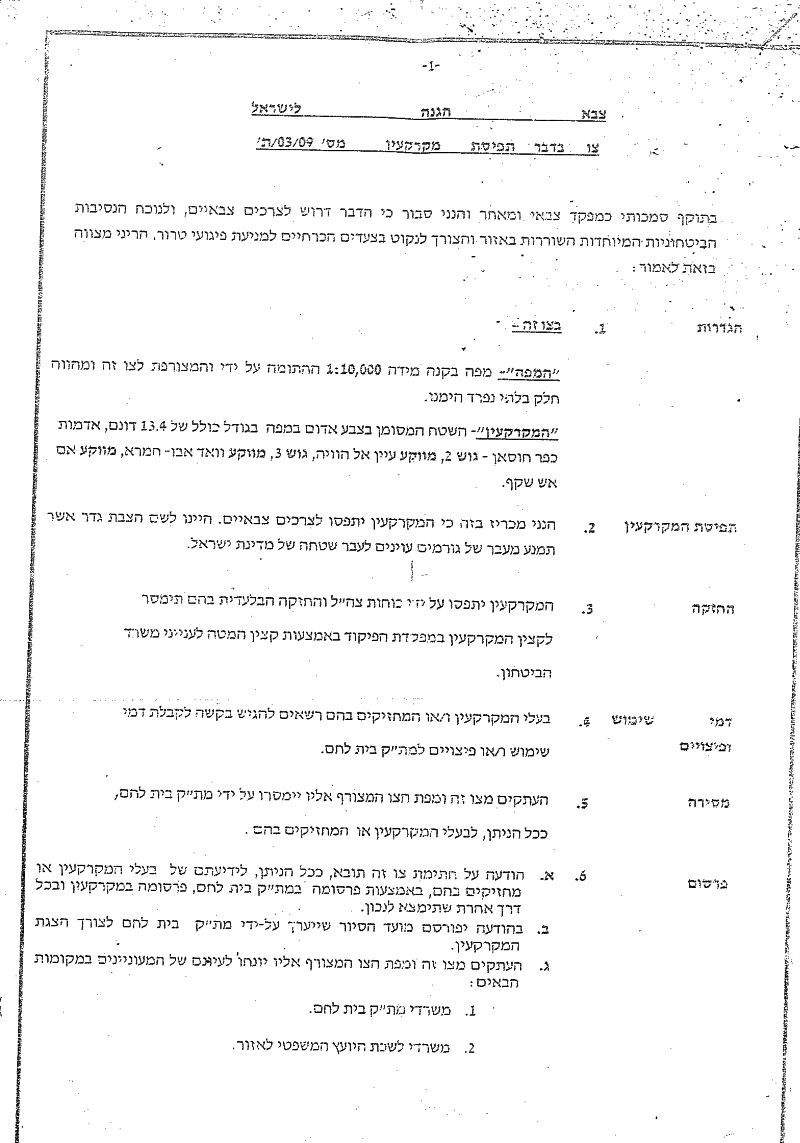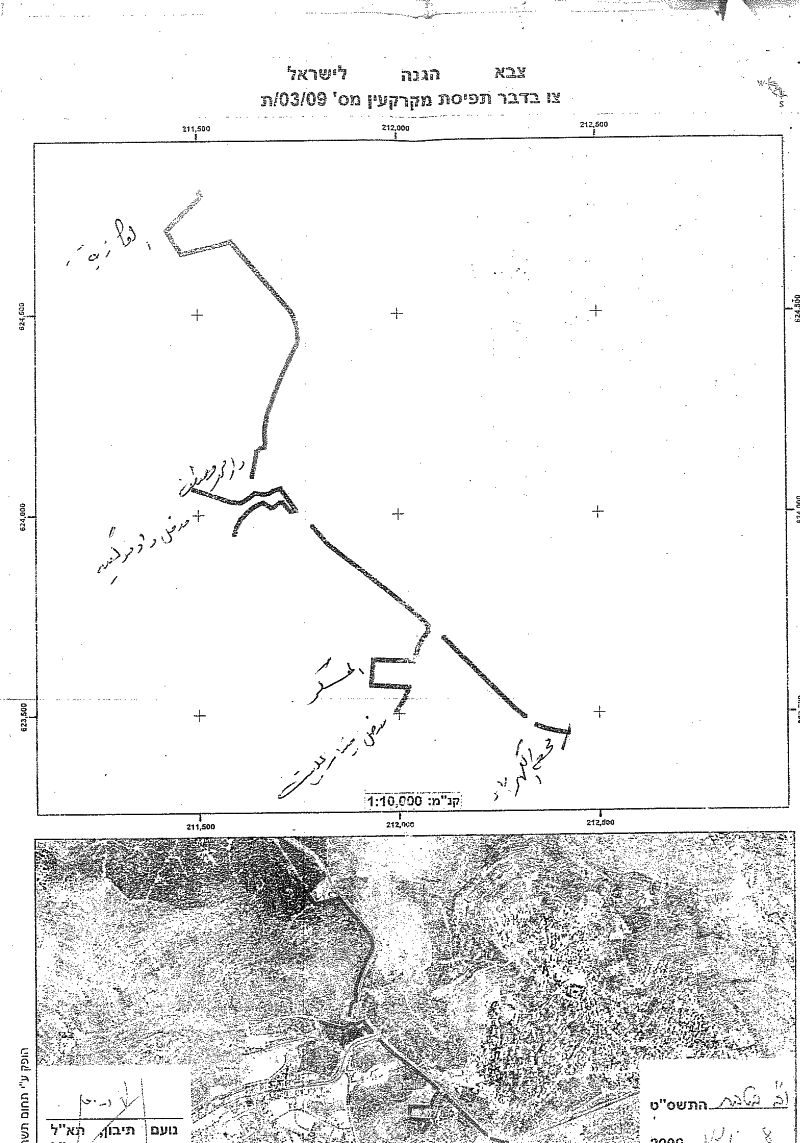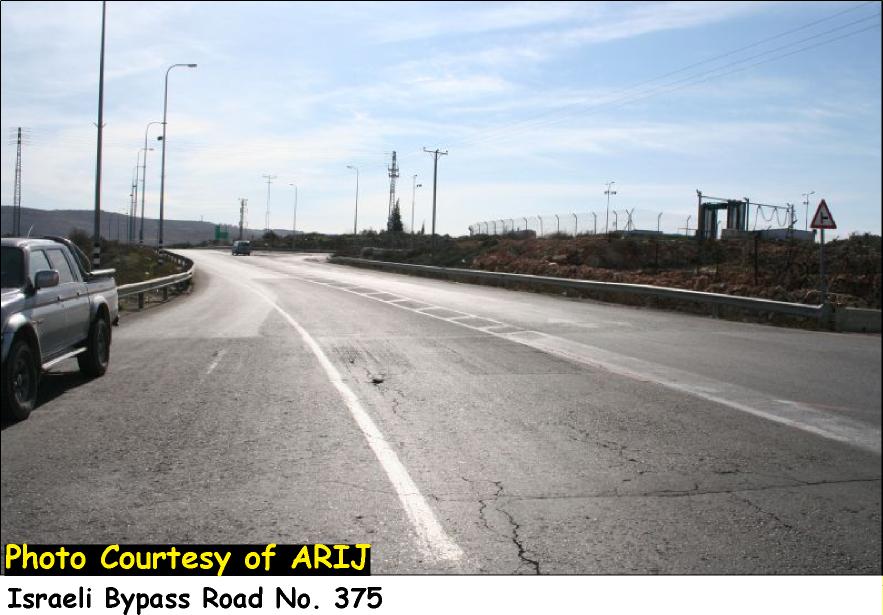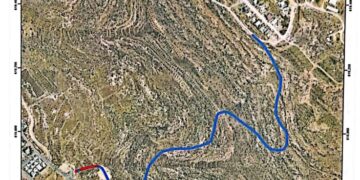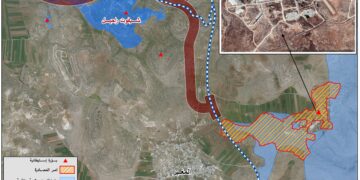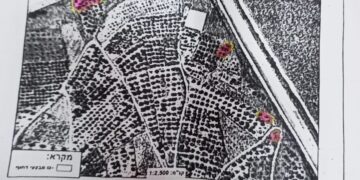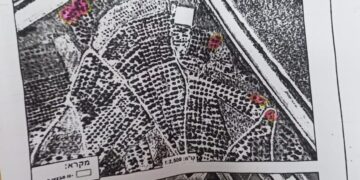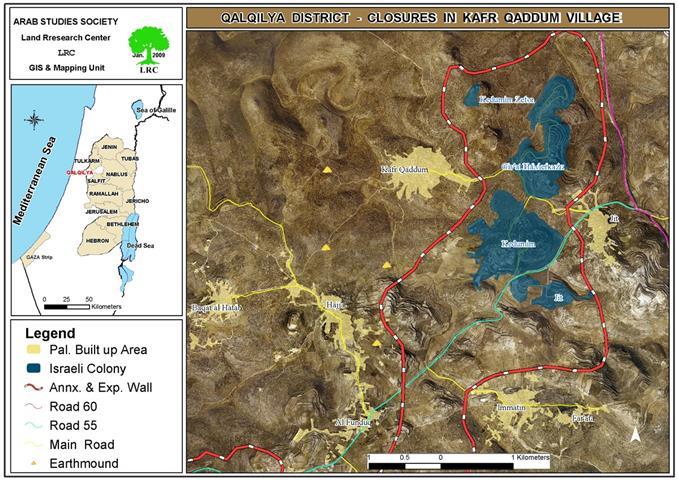On January 8, 2009, Israeli Occupation soldiers threw copies of a new land confiscation order in the Olive Groves of Husan Village lands west of Bethlehem city. The new order holds number 03/09/T and states the confiscation of 13.4 dunums for the construction of a new section of the Segregation Wall on Husan Village land. See Copy of MIlitary Order in Hebrew
Based on the map provided by the IO Forces, the new wall section will come parallel to the Israeli Bypass road No. 375 to prevent the access of 'hostile elements inside the state of Israel' as stated in the Military Order. See Copy of Military Order map in Hebrew
A field visit paid by ARIJ team to the threatened site, the wall section will provide more security to Israeli settlers using bypass road number 375, at the same time it will hinder Palestinian citizens of Husan village from using it. The order will also make another portion of Husan Village lands inaccessible to Palestinian citizens for the favor of Betar Illit settlements which was illegally constructed on a large portion of Husan village land. See Map 1
The threatened lands are owned by 12 land owners in the village, they are: Muhammad Saleh 'Ali Nofel, Sari Muhammad Al Hajja, Ibrahim Muhammad Mustafa, Sameer Abdel Hamid Muhammad Mustafa, Ibrahim Abu Jaber, Ahmad Al Ashqar, As'ad Attiyah Musa, Khalil 'Atiyah Musa, Muhammad Younis Shawasha, Hasan Ni'mah, Odah Hamdan, Muhammad Mustafa Ibrahim, Ibrahim Lafi Shawasha, Muhammad 'Aref Abdel Hamid Sabateen and 'Amer Sabateen.
Husan Village: Location & Population
Husan village is located to the west of Bethlehem city and to east of the 1949 Armistice Line (Green Line); The urban area of the village stands on 292 dunums of land, about 4% of the village's total land area (14794 dunums) and is a home to 6380 inhabitants (PCBS 2008). According to Oslo II Interim Agreement that was signed in September 1995 between the Palestinians and Israelis, Husan village lands were classified into areas B and C. 524 Dunums of which were classified as Area B (7.2 % of the total village area) where most of the built up area is concentrated; while the remaining area of the village, a total of 6777 dunums of Husan village lands were classified as Area C (92.8 % of the total village area).
The Israeli Segregation Wall in International law:-
The systematic nature of Israel's occupation policies (including the Segregation Wall) submits it to a further violation to the Human Rights and international law and comprises a crime of apartheid according to the International Convention on the Suppression and Punishment of the Crime of Apartheid (1973). Moreover, the crime of Apartheid comprises a 'crime against humanity' and 'a serious threat to international peace and security.
It is a flagrant violation of international humanitarian law, specifically The Hague Regulations of 1907 and the Fourth Geneva Convention of 1949:
-
The Hague Regulations expressly forbids an occupying power 'to destroy or seize the enemy's property, unless such destruction or seizure be imperatively demanded by the necessities of war' (Article 23).
-
The Fourth Geneva Convention, Article 49.
-
Article 53 of the Fourth Geneva Convention is also clear that: 'any destruction by the Occupying Power of real or personal property belonging individually or collectively to private persons, or to the State, or to other public authorities, or to social or cooperative organizations, is prohibited, except where such destruction is rendered absolutely necessary by military operations.'
-
The appropriation and destruction of Palestinian land is an especially serious violation of the Fourth Geneva Convention, Article 147 of which clearly prohibits, ''extensive destruction and appropriation of property, not justified by military necessity and carried out unlawfully and wantonly.'' Violations of Articles of the Fourth Geneva Convention constitute grave breaches of the Convention and should be prosecuted as War Crimes.
Appendix 1:-
-
Article 49 of the Fourth Geneva Convention relative to the Protection of Civilian Persons in Time of War, August 12, 1949, 6 UST 3516, paragraph 6: The Occupying Power shall not deport or transfer parts of its own civilian population into the territory it occupies.
-
Article 46 of the Hague Convention prohibits the confiscation of private property in occupied territory. The confiscation of land by the Israeli government for settlement construction is in violation of this article. (Laws and Customs of War on Land (Hague II); July 29, 1899).
-
Article 55 of the Hague Convention stipulates that 'the occupying state shall be regarded only as administrator and usufructuary of public buildings, real estate, forests, and agricultural estates belonging to the hostile State, and situated in the occupied country. It must safeguard the capital of these properties, and administer them in accordance with the rules of usufruct.' In other words, the occupying power cannot take over or use territories or private properties in the occupied territories to serve the interests of its civilian population. (Laws and Customs of War on Land (Hague II); July 29, 1899).
-
The Rome Statute of the International Criminal Court (1998) defines 'the transfer directly or indirectly by the Occupying power of parts of its own civilian population into the territory it occupies' as a War Crime indictable by the International Criminal Court. (Article 7, Crimes Against Humanity).
-
UN Security Council Resolution 465 of 1980 Determines that all measures taken by Israel to change the physical character, demographic composition, institutional structure or status of the Palestinian and other Arab territories occupied since 1967, including Jerusalem, or any part thereof, have no legal validity and that Israel's policy and practices of settling parts of its population and new immigrants in those territories constitute a flagrant violation of the Fourth Geneva Convention relative to the Protection of Civilian Persons in Time of War and also constitute a serious obstruction to achieving a comprehensive, just and lasting peace in the Middle East.
Prepared by:
The Applied Research Institute – Jerusalem


